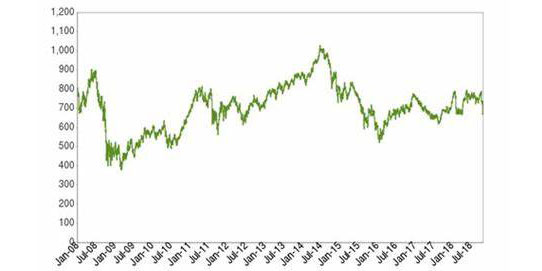Dec 29, 2023 By Susan Kelly

In the dynamic realm of finance, Chartered Accountants (CAs) emerge as unsung heroes, wielding calculators instead of capes. Far from the stereotypical image of number-crunching professionals, CAs are financial architects, advisors, and guardians. This simplified guide unveils the mystique surrounding their role, breaking down complex things to reveal the essence of what CAs truly do.
Beyond the balance sheets and tax codes, they navigate financial landscapes, ensuring accuracy, compliance, and strategic financial health. Join us on a journey to demystify the world of Chartered Accountants and appreciate the vital role they play in shaping financial stability.
Unveiling the Chartered Accountant (CA)
A Chartered Accountant, commonly abbreviated as CA, is a financial professional endowed with a distinctive superpower – the skill to unravel the complex language of numbers. They are akin to financial wizards, adept at navigating the complex landscape of accounting, taxation, and financial management.
But before we delve into their daily responsibilities, it's important to understand the journey one undertakes to become a CA. This journey is no less than a hero's quest, filled with challenges and triumphs. It begins with a rigorous educational process, followed by practical training that provides real-world exposure. The final hurdle is a series of challenging exams that test their knowledge and skills.
The Role of a Chartered Accountant
Here is what you need to know about the role of CA:

Strategic Financial Planning
Beyond the meticulous task of ensuring accurate financial records, Chartered Accountants (CAs) are architects of strategic financial planning. They don't merely calculate numbers; they interpret them to provide businesses with a roadmap for financial success. Imagine them as navigators steering a ship through economic waters, helping businesses avoid pitfalls and charting a course for growth.
Risk Management Experts
CAs play a pivotal role in identifying and mitigating financial risks for businesses. Like seasoned risk management guides, they assess potential threats to financial stability and develop strategies to navigate these challenges. By understanding the intricacies of risk, CAs contribute to the resilience and sustainability of businesses in an ever-changing economic landscape.
Budgetary Guidance
As financial advisors, CAs assist businesses in crafting budgets that align with their goals. They are akin to financial architects, designing budgetary frameworks that ensure optimal resource allocation. This involves not only crunching numbers but also foreseeing potential financial hurdles and steering businesses towards fiscal responsibility.
Cost Efficiency Consultants
In the pursuit of financial health, CAs act as consultants for cost efficiency. They delve into the details of financial statements, identifying areas where businesses can trim unnecessary expenses and streamline operations. This role is essential in helping businesses maintain a lean and efficient financial structure, contributing to overall profitability.
Financial Compliance and Governance
Chartered Accountants are not just keepers of numbers; they are custodians of financial compliance. They ensure that businesses adhere to legal standards and governance frameworks, safeguarding against financial misconduct. This commitment to compliance fosters an environment of trust and transparency, reinforcing the integrity of businesses in the eyes of stakeholders.
Strategic Business Advisors
CAs go beyond being financial consultants; they are strategic business advisors. Armed with a deep understanding of financial landscapes, they provide insights that go beyond immediate fiscal concerns. Their advice encompasses long-term business strategies, helping companies navigate industry trends, technological advancements, and market fluctuations.
Ethical Standards and Professional Conduct
Chartered Accountants (CAs) don't just excel in numbers; they are also guardians of ethical standards in the financial realm. This section sheds light on the ethical dimensions of a CA's role and the importance of professional conduct.
Confidentiality and Trust
CAs often deal with sensitive financial data, and maintaining client confidentiality is paramount. Like trusted advisors, they build a relationship of trust with their clients, assuring them that their financial information is handled with the utmost confidentiality. This trust is not only a professional duty but also a cornerstone of the long-term partnerships CAs form with individuals and businesses.
Balancing Client Interests and Ethical Obligations
The role of a CA often involves balancing the interests of clients with ethical obligations. This delicate equilibrium requires CAs to make decisions that prioritize both the client's goals and ethical standards. Navigating this balance reinforces the trust between CAs and their clients, showcasing their commitment to ethical decision-making.
Continuous Professional Development
To stay abreast of evolving ethical standards and industry best practices, CAs engage in continuous professional development. This ongoing commitment to learning ensures that they remain well-informed about changes in regulations, ethical guidelines, and emerging challenges. It reflects their dedication to providing the highest quality service while upholding ethical values.
The Changing Landscape
The integration of technology has significantly transformed the role of Chartered Accountants (CAs). With the advent of advanced software and analytics tools, CAs have evolved into tech-savvy professionals who enhance efficiency and accuracy in their work. They are like wizards who cast spells with spreadsheets and algorithms to manage and analyze financial data.
In today's interconnected world, CAs often find themselves dealing with international transactions and tax regulations. This requires them to be well-versed in global financial practices, adding an extra layer of complexity to their already challenging role. Their expertise is not limited to local financial practices but extends to a global perspective.
Furthermore, during times of economic downturns or crises, the role of CAs becomes even more critical. They transform into strategic advisors, guiding businesses through rough waters. Their expertise and guidance help navigate financial storms, ensuring that companies not only survive but emerge stronger on the other side. Thus, CAs play a pivotal role in crisis management, demonstrating their versatility and importance in the business world.

Conclusion
In this simplified guide, we've demystified the world of Chartered Accountants. They are not just number wizards; they are financial advisors, tax experts, and guardians of financial integrity. The journey to becoming a CA is no walk in the park, and their daily tasks go far beyond mere number-crunching. As the financial landscape evolves, so does their role, making them indispensable in the world of finance.
-

How To Use Cash-Out Refinance Calculator
Oct 28, 2023
-

Gross Domestic Product
Oct 04, 2023
-

How To Use 529 Funds To Pay For Overseas Education
Jan 19, 2024
-

What is Bull Put Credit Spread
Nov 10, 2023
-

Find Out: What Are the Minimum Number of Shares You Can Buy?
Nov 06, 2023
-

The Best Prepaid Debit Cards Of 2022
Jan 21, 2024
-

Essentials of Bird Dogging in Real Estate for Beginners and Field Pros
Dec 22, 2023
-

Reverse Mergers Advantages and Disadvantages
Feb 12, 2024



